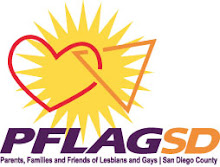Although I'm sure I'll blog plenty more about coming out and coping with responses, this is the final installment in my recent four-part series "Reactions of Others". In this blog I'm addressing the F word: Fear. Fear is often a huge component in the reactions of others. In fact, I'd be as bold to guess that when a transgender individual reveals his or her true gender identity and/or plans to transition, there are suddenly three participants in that conversation: the transgender individual, the loved one, and Fear. Of course, how much fear is present depends upon the nature of the relationship between the two people, how long they have known each other, and the world view of the loved one.
Any type of change can trigger the fear reaction. Many people prefer things to remain just as they are; familiar, stable, predictable. Change that is unexpected and unwelcome can signal something that is out of one's control. I know many family members and friends feel out of control and powerless regarding this issue. Powerless to change it, powerless to fix it, sometimes powerless to understand. Ultimately, many loved ones realize it is the decision of the transgender person to act on the transition even if they themselves don't understand or want it. Many loved ones fear they are "losing" someone they love very much, and may not recognize the person he or she becomes. Many fear the one they care about will regret such a significant, life-altering decision. Most, at some point, worry about the safety of their transgender loved one.
In addition to these specific fears, having a close friend or family member come out as transgender questions the gender binary. Those who could previously organize gender into two neat little boxes can be thrown by the concept that gender can be fluid and dynamic. It can cause people to question core beliefs; something they always thought they understood. As you probably know, challenging core beliefs makes people uncomfortable. The less the person understands, the more fear will be present to take the place of knowledge and comprehension. Fear of the unknown is often NOT simply fear of the unknown, it's a fear of the "what if", or the "fill in the blank". The ideas and worst-case scenarios people create cause more fear than simply not knowing.
Fear can whisper; fear can shout. Fear may be ever-present in the journey your loved ones take to acceptance, or it just may rear its ugly head every now and again. My hope is that when it does, recognize it for what it is. See the fear which may be disguised as anger, and masked in a lashing out you don't deserve. Understand and expect the fear, as fear was likely a part of YOUR journey, too. Let your loved one know you're in this together, the two of you. Eventually fear can be on its way.


WordPress.com





No comments:
Post a Comment
Thank you for your comments.